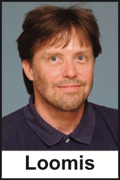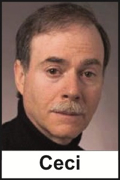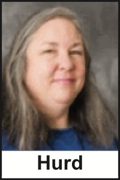Rascals case in brief
In the beginning, in 1989, more than 90 children at the Little Rascals Day Care Center in Edenton, North Carolina, accused a total of 20 adults with 429 instances of sexual abuse over a three-year period. It may have all begun with one parent’s complaint about punishment given her child.
Among the alleged perpetrators: the sheriff and mayor. But prosecutors would charge only Robin Byrum, Darlene Harris, Elizabeth “Betsy” Kelly, Robert “Bob” Kelly, Willard Scott Privott, Shelley Stone and Dawn Wilson – the Edenton 7.
Along with sodomy and beatings, allegations included a baby killed with a handgun, a child being hung upside down from a tree and being set on fire and countless other fantastic incidents involving spaceships, hot air balloons, pirate ships and trained sharks.
By the time prosecutors dropped the last charges in 1997, Little Rascals had become North Carolina’s longest and most costly criminal trial. Prosecutors kept defendants jailed in hopes at least one would turn against their supposed co-conspirators. Remarkably, none did. Another shameful record: Five defendants had to wait longer to face their accusers in court than anyone else in North Carolina history.
Between 1991 and 1997, Ofra Bikel produced three extraordinary episodes on the Little Rascals case for the PBS series “Frontline.” Although “Innocence Lost” did not deter prosecutors, it exposed their tactics and fostered nationwide skepticism and dismay.
With each passing year, the absurdity of the Little Rascals charges has become more obvious. But no admission of error has ever come from prosecutors, police, interviewers or parents. This site is devoted to the issues raised by this case.
On Facebook
Click for earlier Facebook posts archived on this site
Click to go to
Today’s random selection from the Little Rascals Day Care archives….
Click for earlier Facebook posts archived on this site
Click to go to
Today’s random selection from the Little Rascals Day Care archives….
Betsy Kelly’s cruelly long and ugly road to freedom
Nov. 27, 2019
Betsy Kelly is paroled from the Correctional Institution for Women in Raleigh.
 In January she accepted a plea of “no contest” and a sentence of seven years in prison. Since she had already served two years and two weeks in jail, she became eligible for parole almost immediately. But Assistant Attorney General Bill Hart, fuming over her unwavering insistence that she was innocent, reneged on an agreement not to challenge her release, and the Parole Commission kept her imprisoned another 10 months.
In January she accepted a plea of “no contest” and a sentence of seven years in prison. Since she had already served two years and two weeks in jail, she became eligible for parole almost immediately. But Assistant Attorney General Bill Hart, fuming over her unwavering insistence that she was innocent, reneged on an agreement not to challenge her release, and the Parole Commission kept her imprisoned another 10 months.
Betsy Kelly’s no contest plea disqualifies her from the National Registry of Exonerations, but she is surely as innocent as the rest of the Edenton Seven – that is, completely innocent, Bill Hart be damned.
Edenton newspaper shed little light on case
 March 13, 2013
March 13, 2013
In researching his master’s thesis, “Modern Witch Hunts: How Media Have Mishandled Ritual Child-Sex-Abuse Cases,” UNC Chapel Hill journalism student David O. Loomis focused on the inadequate coverage provided by the weekly Chowan Herald in Edenton.
“North Carolina law,” Loomis acknowledged, “prohibits official disclosure of information about ongoing criminal investigations. Under the circumstances, gathering information about questionable interrogations conducted in therapy sessions would be a difficult and complex undertaking for a small reporting staff on a tight budget….”
The comments he elicited from Jack D. Grove, former managing editor of the Herald, reflect the challenge stories such as Little Rascals present tiny newsrooms – and the severely limited guidance they are able to make available to readers in forming opinions:
On his journalistic experience: “I was never a professional reporter.”
On being almost three months behind the Elizabeth City Advance in starting to cover the story: “In a small town like Edenton, reputations are at stake. Reputations are everything in a small town.”
On relations with prosecutors and police: “The district attorney became our prime source…. I didn’t ask questions of the Police Department at all, because I knew what the answers were going to be…. I did ask Brenda Toppin, who I did not know was lead investigator, but I got an uncharacteristic cold shoulder. She said, ‘I can’t comment on an ongoing investigation.’ That was interesting.”
On the newsroom budget: “I could only make long-distance calls when the boss would let me. He never refused. But he had to approve.”
On outside pressure: “I was approached by several influential businessmen who clouded up and rained all over me for putting a (Little Rascals) story on the back page. I said, ‘Go tell Pete Manning (the publisher), don’t tell me.’ These businessmen, almost all parents of Little Rascals children, went into a closed-door meeting with Pete. We never again had a story anywhere but on the front page after that.”
Courtesy of David Loomis, “Modern Witch Hunts” is now available on the Bookshelf of case materials on this website.
Prosecution kept its eye on the (wrong) target
Dec. 28, 2011
“Throughout the trial, prosecuting attorneys (in the Little Rascals case) repeatedly pursued their hunches without an apparent desire to test an alternate theory. This resulted in a rather spectacular false admission by 6-year-old Andy, who had been a 3-year-old at the time of the alleged sexual abuse by Bob Kelly.
 “ ‘Prosecutor: Do you remember a time where you ever had to do anything to Mr. Bob’s hiney with your mouth?
“ ‘Prosecutor: Do you remember a time where you ever had to do anything to Mr. Bob’s hiney with your mouth?
“ ‘Andy: No, ma’am.
“ ‘Prosecutor: Do you remember telling Dr. Betty that one time you had to lick Mr. Bob’s hiney? Did that happen? Did you ever have to do that, that you didn’t want to do it?
“ ‘Andy: Yes, ma’am.’
“In reality, the prosecutor had made a mistake, thinking that the charge was that Andy had sodomized Bob Kelly, rather than the other way around. The state dropped this charge after it realized Andy had admitted to the wrong charge.
“This ought to have sensitized the prosecution to the very real dangers of pursuing a single hypothesis in the relentless manner we have described, but unfortunately it did not appear to have done so.”
– From “Jeopardy in the Courtroom: A Scientific Analysis of Children’s Testimony”
by Stephen J. Ceci and Maggie Bruck (1995)
UNCG professor showed no tolerance for skepticism
 Feb. 13, 2012
Feb. 13, 2012
“It is evident that, although mistakes were made in the handling of the (Little Rascals) case, these children definitely were sexually abused by one or more individuals at the day care center. To suggest otherwise is to revictimize these smallest victims.
“As a professor of social work at UNCG whose specialty is child abuse, I would like the public to be aware that research has shown that 97-99 out of 100 children who report that they have been sexually abused are telling the truth. When a child tells you that an unauthorized adult is ‘playing doctor’ with him/her, it is highly likely that he/she is describing some sort of abuse.
“If you do not believe the child, you become part of the victimization of that child. If you believe that detection and prosecution of child abuse cases are witch hunts, then you protect child molesters and allow them to continue to traumatize children. I cannot imagine that the responsible people of this state want to put themselves on the side of criminals who abuse children.”
Elisabeth Porter Hurd, Greensboro
– From a letter to the editor of the Greensboro News & Record, June 9, 1997
Does Dr. Hurd still believe that the Little Rascals children “definitely were sexually abused”? And that to doubt the prosecution’s case was to “protect child molesters and allow them to continue to traumatize children”?
Last week I asked Dr. Hurd whether she might have changed her mind – so far no response.











0 CommentsComment on Facebook